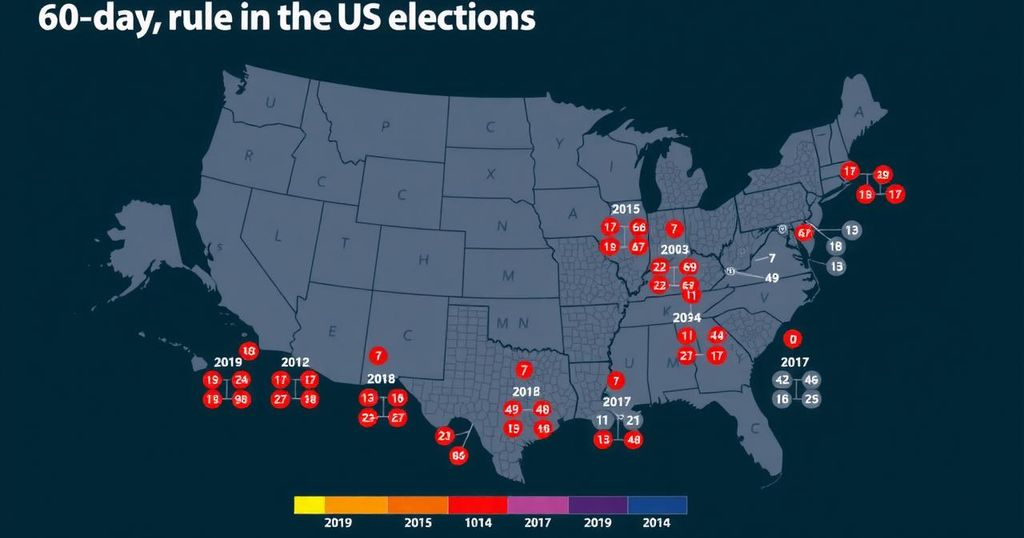The Misconception of the ’60-Day Rule’ in U.S. Elections
The inquiry surrounding the existence of a so-called “60-day rule” in the context of United States elections has gained significant attention recently, particularly following comments made by former President Donald Trump. He posited that the Department of Justice (DOJ) is bound by a guideline that restricts its actions with respect to candidates within 60 days of an election. The implications of such a claim are profound as Trump faces two federal indictments: one in Washington, D.C., related to efforts to undermine the 2020 election, and another in Florida concerning the alleged mishandling of classified documents.
As the presidential election approaches on November 5, 2023, commentators have scrutinized Trump’s assertions regarding the DOJ’s internal policies. Trump notably referenced this purported “60-day rule” in response to an updated indictment filed in his federal election case in Washington, D.C. He stated on his platform, Truth Social, that it is DOJ policy to avoid actions that might influence the election during this crucial window. This narrative was echoed by others, including Judge Aileen Cannon, who questioned the appropriateness of proceeding with a trial prior to the election.
Legal experts, however, have largely dismissed Trump’s claims. Jay Bratt, a prosecutor involved in the Florida case, clarified to Judge Cannon that the indictment of Trump had already taken place, meaning that no existing guideline or customary norm would be contravened by continued legal action.
The roots of Trump’s assertion lie in an unwritten and ambiguous guideline historically adopted by DOJ officials. A 2018 report from the DOJ’s inspector general explicitly notes that there is no formal prohibition against overt investigative actions in the lead-up to elections. Nonetheless, it acknowledges that many officials have adhered to the long-standing practice of avoiding pronounced law enforcement measures within 60 to 90 days of an election. This report also referenced the past actions of former FBI Director James Comey, who reopened an investigation into Democratic candidate Hillary Clinton just eleven days before the 2016 election, stating that maintaining norms against such interventions is critical.
Trump’s recourse regarding these legal challenges appears limited. The guideline in question remains unwritten and serves as a best practice rather than a binding legal stipulation. Decisions regarding its application rest with DOJ officials. Additionally, legal scholars assert that the guideline is primarily applicable to significant actions such as new indictments, which does not pertain to Trump’s existing charges, thus allowing the proceedings in both the Washington and Florida cases to continue unaffected.
It is also pertinent to note that this unwritten guideline does not extend to Trump’s sentencing in New York or to pending trials in Georgia, as these events fall under state jurisdiction versus federal. Furthermore, even if the guideline were to hold any weight, it has been established that the updated indictment was filed on August 27, 2023, which is outside the 60-day timeframe, occurring 70 days before the election. Therefore, it is crucial to approach claims regarding a so-called “60-day rule” with a discerning eye, as they lack a basis in formal policy and operate more as a matter of practice among DOJ officials.








Post Comment